If you're looking into the health benefits of sea moss, bladderwrack and burdock root, you're in the right place. These plants have been used for many years in traditional medicine for their potential health benefits.
They're highly sought after for their rich vitamin, mineral, and phytochemical content and are often used in combination due to their powerful anti-inflammatory and immune-boosting benefits.
Sea moss is a type of red algae known as Irish moss, red seaweed, or chondrus crispus. It’s known for its anti-oxidative, anti-inflammatory, anti-cancer, and anti-microbial properties. Sea moss is rich in minerals such as iodine, potassium, calcium, and magnesium. It is believed to help with thyroid function, aid in digestion, and boost immune system function.
Bladderwrack is a type of brown seaweed/brown algae, also called red fucus or fucus vesiculosus, and is a powerful source of iodine and other minerals. It is believed to help with thyroid function, improve joint health, and help with weight loss.
Burdock aka arctium lappa, is a plant native to Asia and Europe but it also grows in the US. It has large oval leaves, broad pinkish flowers and is a member of the daisy family. Burdock root, sometimes called gobo, is considered a root vegetable. It's rich in phenolic acids, quercetin, and luteolin, which are powerful antioxidants. It is believed to have the ability to help with skin conditions, like eczema and acne, and aid in digestion.
Table of contents
- Health Benefits of Sea Moss, Bladderwrack, and Burdock Root
- 1. Supports Digestion and Gut Health
- 2. Thyroid Function
- 3. Immune Function
- 4. Possible Cancer Prevention
- 5. Support Eye Health and Vision
- 6. Combating Overall Inflammation
- 7. Respiratory Health
- 8. Joint Health
- 9. Skin Health
- 10. Support Energy Levels
- 11. Combat Anemia
- 12. Weight Loss and Weight Management
- 13. Diabetes Management
- 14. Detoxification
- 15. Supports Sexual Health and Fertility
- 16. Improved Blood Circulation and Cardiovascular Health
- Popular Uses of Sea Moss
- Popular Uses of Bladderwrack
- Popular Uses of Burdock Root
Health Benefits of Sea Moss, Bladderwrack, and Burdock Root
1. Supports Digestion and Gut Health
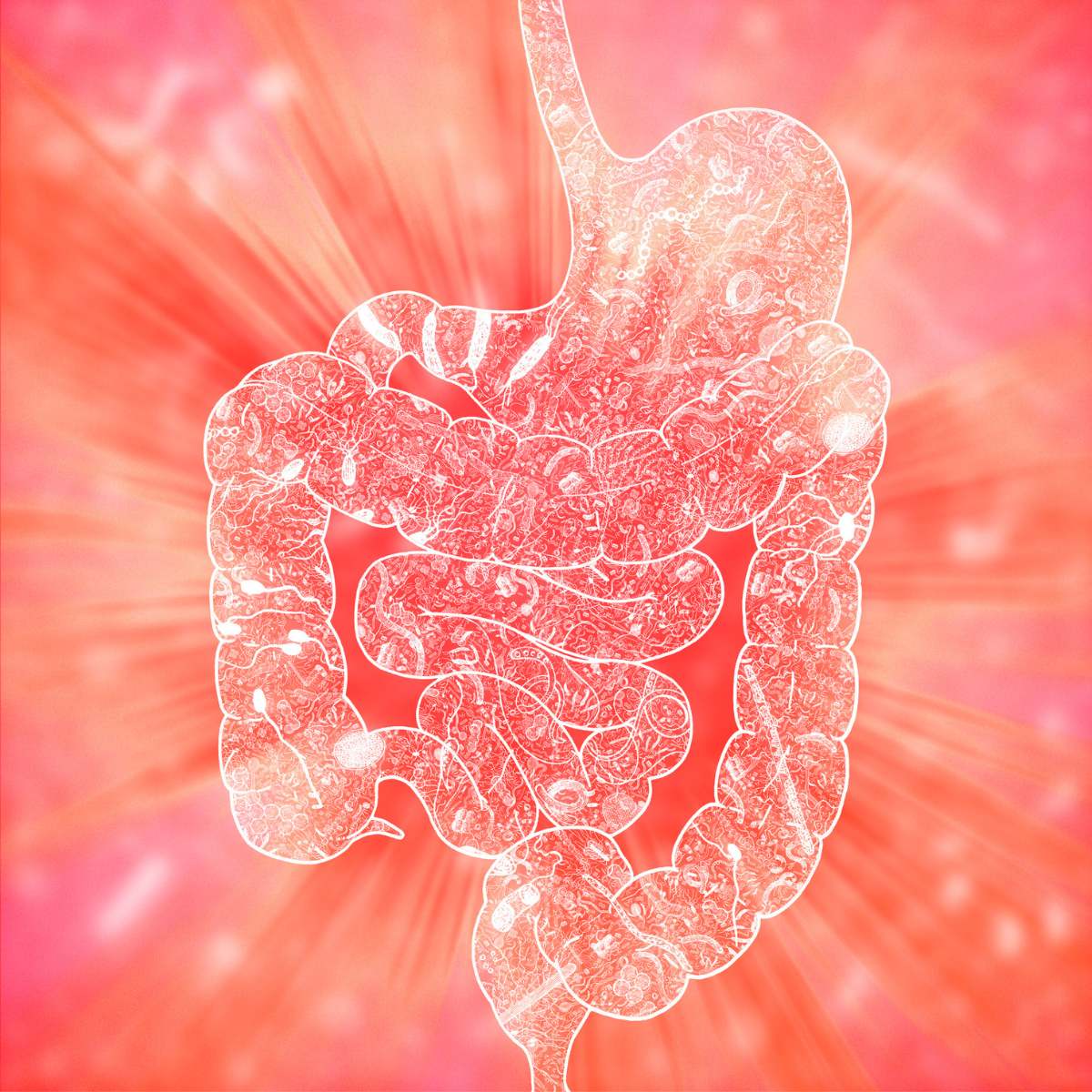
Sea moss, bladderwrack, and burdock root contain natural prebiotic fibers. These help to promote the growth of beneficial bacteria in the gut. These fibers also have a gentle laxative effect and help to promote regular bowel movements.
This can help to improve overall gut health and reduce the risk of digestive problems, such as constipation, bloating, and diarrhea. They of course also have antioxidant and anti-inflammatory properties, which can help to protect the gut against oxidative stress and inflammation.
Both bladderwrack and sea moss are sources of alginates, which are long-chain polysaccharides. These can help to improve gut health by forming a protective barrier in the gut that helps to prevent the absorption of harmful substances.
Alginates can also help to promote the growth of beneficial bacteria in the gut and reduce inflammation, which can improve overall gut health. One study published in the Journal of Functional Foods in 2016 found that Irish moss polysaccharides may work as a natural anti-inflammatory agent. Thus, they may be useful for the treatment of digestive disorders.
Another study published in the Journal of Applied Psychology in 2006 found that seaweed extracts, including those from sea moss were effective at controlling the growth of harmful bacteria. Many of these bacteria are involved in digestive issues.
2. Thyroid Function
All three plants contain a variety of nutrients, including iodine, potassium, calcium, and magnesium. These are essential for supporting the functioning of the thyroid gland and maintaining healthy metabolic processes. They may help to balance thyroid hormones and reduce symptoms of hypothyroidism.
It is believed that bladderwrack may help regulate the thyroid gland and improve symptoms of goiter, a condition in which the thyroid gland becomes enlarged.
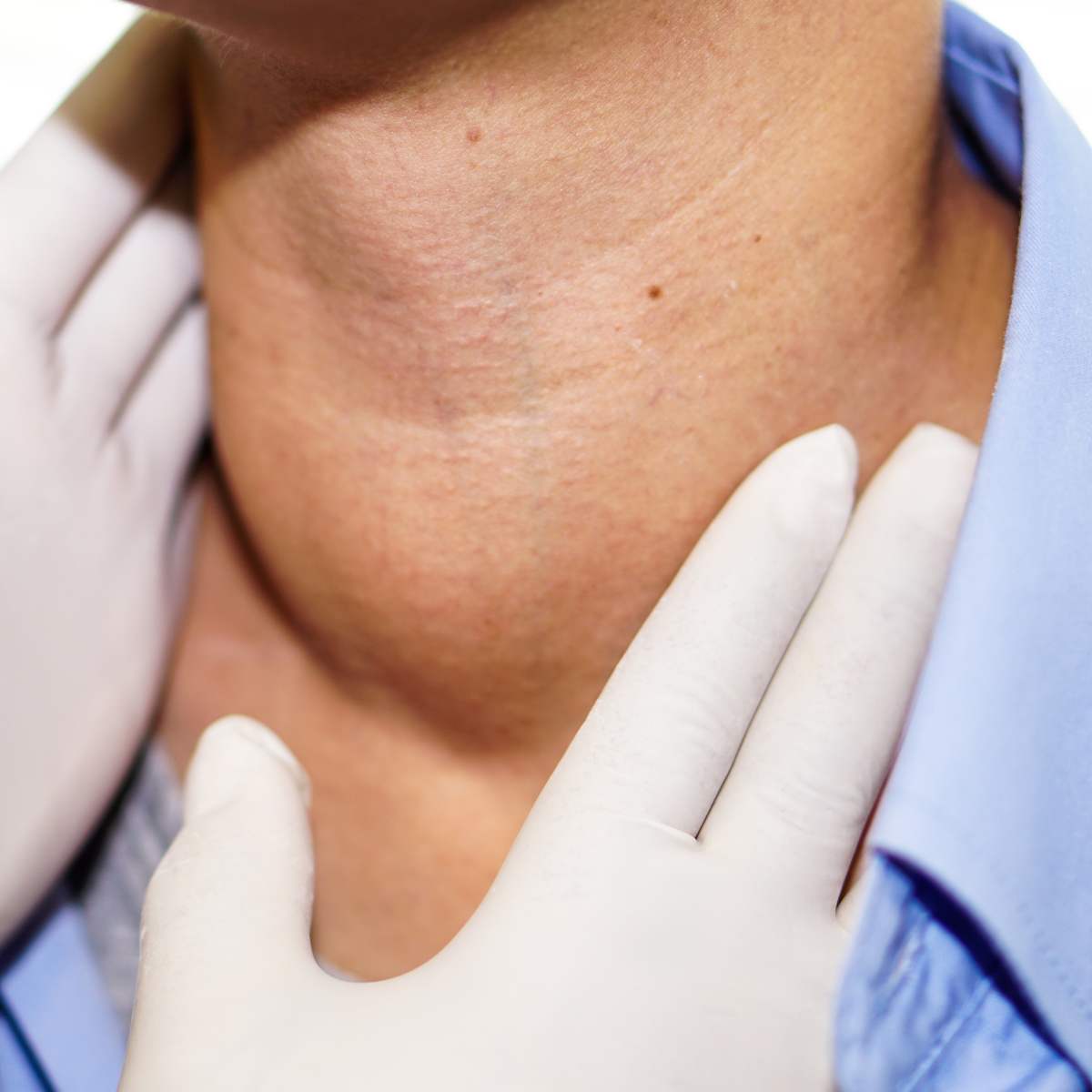
It's important to note that it's possible to over-consume sea moss (and other high iodine plants) due to high levels of iodine, so it's best keep it in moderation. One study noted that up to 4g per day of various seaweeds posed no notable health risks. *Note this study probably didn't factor in those with thyroid disease.
3. Immune Function
Sea moss and burdock root are rich sources of key nutrients that are important for providing the body with the building blocks to produce and maintain healthy immune cells.
For example, sea moss contains high levels of vitamins A, C, and E, which support the immune system by helping to neutralize free radicals and reduce oxidative stress.
Sea moss and bladderwrack are also sources of fucoidan, a type of polysaccharide that has been shown to have immune-boosting properties.
Fucoidan can help to support immune function by increasing the production of cytokines. These are proteins that play a crucial role in regulating the immune system.
One study published in the Journal of Applied Psychology in 2013 found that seaweed polysaccharides may be able to modulate the immune system and improve immune function.
Lymphatic Support
The lymphatic system is an important part of the body's immune system, responsible for removing waste and toxins from the body. Some sea moss supporters claim that it can benefit the lymphatic system by providing a rich source of nutrients.
These nutrients allow the lymphatic system to work properly. This in turn, can help the body to eliminate waste and toxins more effectively.
Antiviral and Anti-Microbial Properties
Burdock root and sea moss have been shown to have antimicrobial properties, which can help to protect the body against harmful bacteria and viruses. This helps support the immune system by preventing infections and reducing the risk of illness.

One study investigated the antiviral activity of seaweed extracts, including sea moss, and found that they showed potential for controlling the growth of harmful viruses.
Supporting Healthy Mucous Membranes
Mucous membranes are the moist linings of certain body cavities, like the mouth, nose, and throat. These play a vital role in protecting the body from pathogens and other harmful substances.
Some believe that sea moss can help support healthy mucous membranes by soothing them during a cold or other infection. It's also believed to be useful in combating mucus accumulation.
Note About Autoimmune Disease
While sea moss is considered to be a nutritious food, it may not be suitable for those with autoimmune diseases. Some autoimmune diseases, like Hashimoto's Thyroiditis and Graves' disease, can be triggered by an overactive immune response to iodine. This type of response can happen with various types of seaweed like sea moss.
For people with autoimmune diseases, consuming large amounts of sea moss or other seaweeds high in iodine could potentially worsen their condition and lead to an overactive or underactive thyroid.
In general, it is recommended that people with thyroid disease consume a balanced amount of iodine in their diet. However, they should avoid taking high doses of iodine supplements without medical supervision, as this can lead to an imbalance in their thyroid hormone levels.
4. Possible Cancer Prevention
Sea moss and bladderwrack contain polysaccharides, which are complex sugars that can help to support immune function. They do this stimulating the production of immune cells and increasing the activity of natural killer cells.
These immune cells play a crucial role in identifying and neutralizing harmful invaders, such as bacteria, viruses, and cancer cells.
The antioxidants in these plants are believed to play a role in reducing the risk of cancer. They do this by preventing oxidative damage to cells, which can contribute to the development of cancer.
In particular brown algae contains a polyphenol called phlorotannin which has been shown to demonstrate anticancer properties.
5. Support Eye Health and Vision
There is limited scientific evidence to support the claim that sea moss can help with macular degeneration. Macular degeneration is a progressive eye disease that affects the central part of the retina, called the macula, and can lead to vision loss over time.
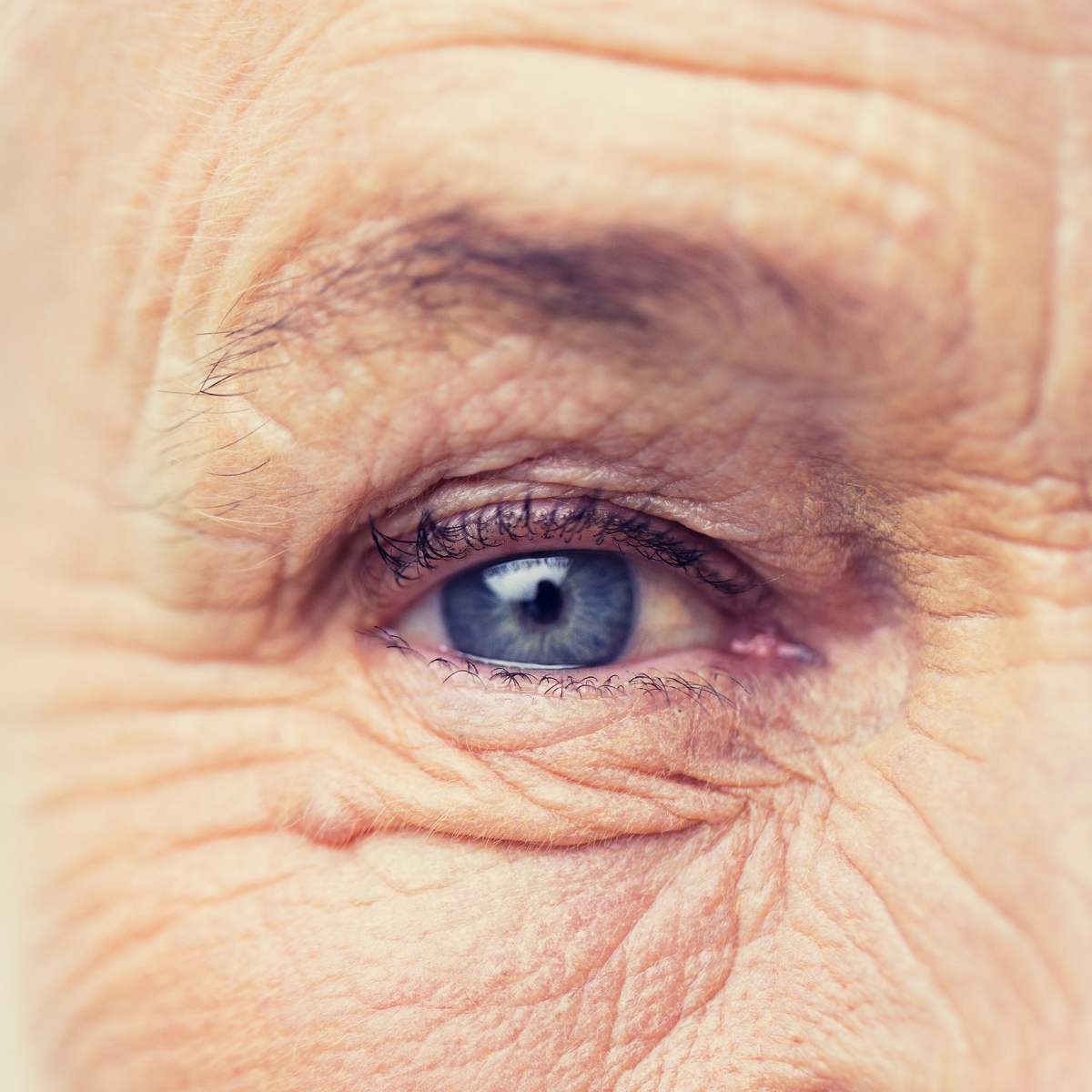
Sea moss, bladderwrack, and burdock root are good sources of vitamins, minerals, and antioxidants, that are important for eye health. For example, sea moss is a good source of vitamin A, which is important for maintaining good vision.
Sea moss, bladderwrack, and burdock root are rich in vitamin C, which has been shown to protect the eyes against oxidative damage. (9)
However, while these nutrients may play a role in maintaining good eye health, there is limited evidence to suggest that sea moss specifically can help with macular degeneration. More research is needed in this area.
6. Combating Overall Inflammation

Sea moss is a source of antioxidants and anti-inflammatory compounds including high levels of beta carotene, which can help protect the body against oxidative stress and reduce inflammation.
Some people believe that sea moss's anti-inflammatory effects can also help to reduce the strain on the lymphatic system. This is thought to be due to the presence of compounds such as carrageenan, a type of polysaccharide that has anti-inflammatory properties.
7. Respiratory Health
Sea Moss and bladderwrack are believed to help to reduce inflammation in the respiratory system due to their high iodine content and nutrient density.
Some studies have also shown that bladderwrack may have a positive effect on the immune system.
This could help to reduce inflammation in the lungs by strengthening the body's ability to fight off infections and other causes of inflammation.
These effects can help to reduce symptoms of conditions such as asthma and bronchitis.
8. Joint Health
Bladderwrack and burdock root contain compounds that may help to reduce inflammation in the joints, which can help reduce joint pain in conditions like osteoarthritis and rheumatoid arthritis.
One study published in Biologics in 2010 showed that participants experienced a reduction in joint pain related to osteoarthritis after taking a supplement containing bladderwrack for 12 weeks.
9. Skin Health
Sea Moss
Sea moss contains a variety of nutrients, including vitamins and minerals, that are essential for skin health. One of these is vitamin C, which plays a role in collagen synthesis. The other is iodine, which is important for maintaining healthy skin.
Sea moss's rich zinc content plays a role in many physiological processes, including immune function, wound healing, and DNA synthesis. It is also involved in the sense of taste and smell, and helps support healthy skin and eyes.
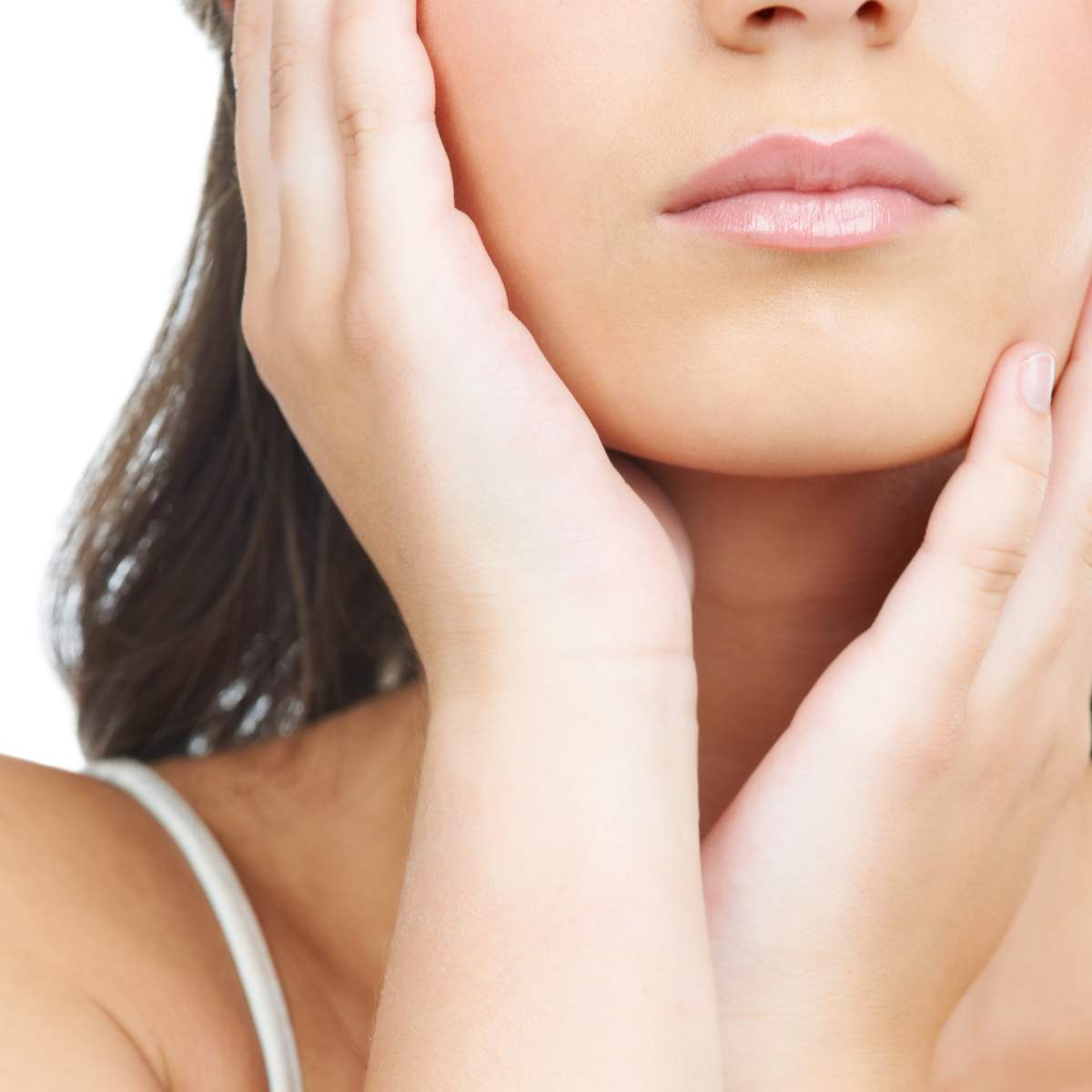
Thanks to these potent minerals and antioxidants, sea moss can help protect the skin against oxidative stress and damage caused by free radicals.
The soothing effects of sea moss may help to improve skin health and reduce symptoms related to conditions like eczema and acne.
In addition, sea moss is sought after for its anti-inflammatory properties, which can help soothe irritated skin. It is also a source of mucilage, a type of polysaccharide that has moisturizing and hydrating properties that may benefit dry, flaky skin.
Bladderwrack
Bladderwrack contains compounds that may help to improve skin health and reduce symptoms like eczema and psoriasis.
Bladderwrack's anti-inflammatory and antibacterial properties allow it to calm and soothe irritated skin. It's also a very good moisturizer for dry flaky skin because it contains a sulfated polysaccharide, called fucoidan.
It's also a good source of calcium, which is important for skin firmness and elasticity.
Additionally, bladderwrack is a source of antioxidants, which can help protect the skin against oxidative stress and damage caused by free radicals.
Extracts from bladderwrack have been used to reduce dark circles and bags under the eyes. They also have been shown to stimulate collagen production which reduces fine lines and wrinkles.
Burdock Root
Burdock root is also used to relieve symptoms related to conditions like eczema, acne and psoriasis. Since it is a rich source of antioxidants and anti-inflammatory compounds, it's able to protect the skin against oxidative stress and reduce inflammation.
Additionally, burdock root contains inulin, a unique type of fiber that is very moisturizing. Thus, it's used to hydrate dry skin.
One study published in the Journal of Dermatological Science in 2004 found that burdock root showed potential for protecting the skin from damage caused by UV radiation and other environmental factors.
10. Support Energy Levels
Since Bladderwrack provides iodine, which supports the thyroid gland, it indirectly helps regulate metabolism and energy levels.
The inulin in Burdock root is a soluble fiber which helps to improve digestive health and regulate blood sugar levels. This has the potential to increase energy levels.
The general nutrient density of sea moss makes it a good tool for promoting overall health and well-being. Thus, it's also sought after in the alternative medicine world to help improve energy levels.
11. Combat Anemia
Hemoglobin is a protein found in red blood cells that carries oxygen from the lungs to the body's tissues and organs. Low hemoglobin levels, also known as anemia, can be caused by a variety of things. Some of these include poor diet, bleeding, and certain health conditions.
Sea moss is a good source of iron which is why it's sometimes used to help improve low hemoglobin levels.
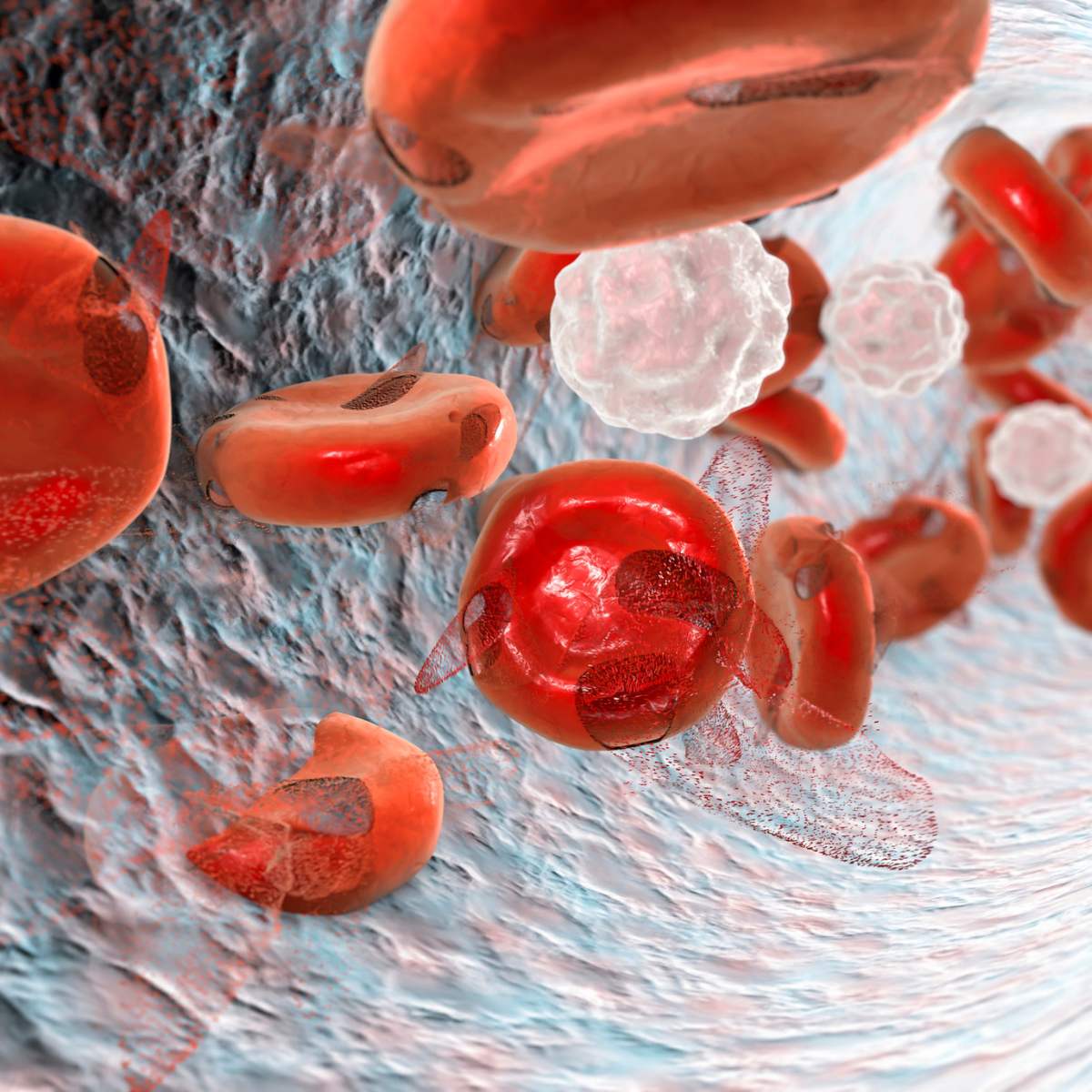
A study published in the Journal of Food Composition and Analysis in 2019 found sea moss to be a good source of iron, which is important for treating anemia.
Another study published in the Journal of Alternative and Complementary Medicine in 2002 found that sea moss may improve the symptoms of iron-deficiency anemia.
12. Weight Loss and Weight Management
Bladderwrack is believed to help boost metabolism and aid in weight loss.
A study published in the Journal of Ethnopharmacology in 2014 found that bladderwrack may help to reduce body weight and improve insulin sensitivity.
Another study published in the Journal of Ethnopharmacology in 2009 found that bladderwrack may reduce food intake, improve appetite control, and promote weight loss.
13. Diabetes Management
Sea moss is sometimes used in traditional medicine to support healthy blood sugar levels and manage diabetes. However, more research is needed to fully understand its effects on diabetes.
Sea moss may help regulate blood sugar levels by improving insulin sensitivity and reducing inflammation, among other mechanisms.
A study published in the Journal of Ethnopharmacology in 2016 found that sea moss may improve glucose tolerance and reduce blood sugar levels in diabetic rats.
All this being said, it's important to keep in mind there's not a ton of scientific evidence on the use of sea moss for diabetes management. Thus, it should not be used as a substitute for conventional treatments for diabetes, like prescription medication or dietary changes.
If you have diabetes, be sure to speak with your doctor before using sea moss or any other natural remedies.
14. Detoxification
Burdock Root
Compounds found in burdock root like inulin, luteolin, quercetin, and arctigenin, have been shown to have potent antioxidant and anti-inflammatory effects.
Burdock root is believed to help the body's natural detoxification processes by removing toxins and supporting the liver and kidneys.
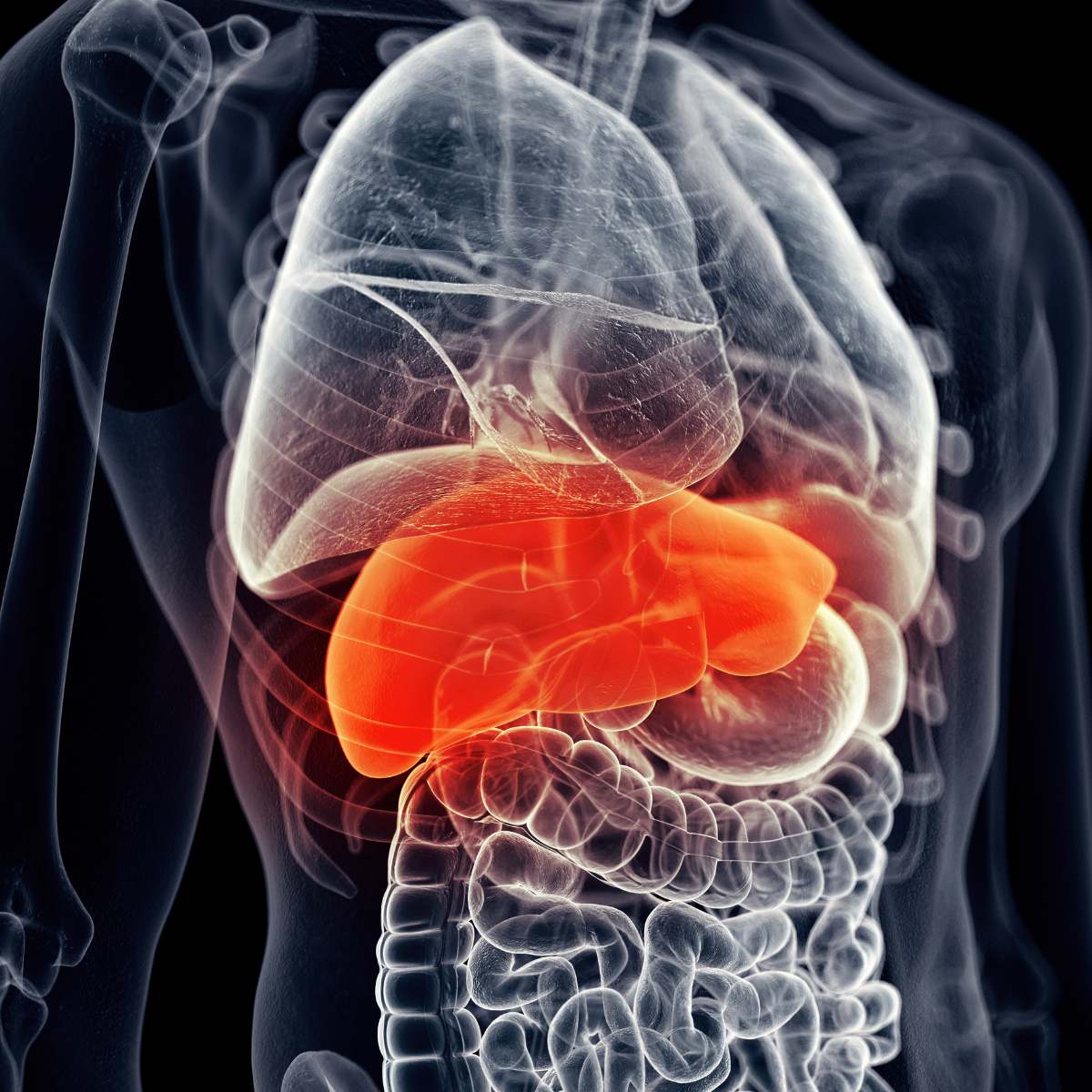
A study published in the Journal of Functional Foods in 2020 found that burdock root had the potential to reduce oxidative stress and improve liver function in rats.
Sea Moss
The high concentration of minerals in sea moss may help support the liver and other organs responsible for removing toxins from the body. This helps to promote overall health and wellness.
Bladderwrack
Bladderwrack helps protect the body against oxidative stress and inflammation, by providing a variety of anti-inflammatory compounds.
The high concentration of iodine in bladderwrack supports the thyroid gland, which regulates the body's metabolism and hormone levels.
The end result is likely a better functioning liver and improved ability to remove toxins from the body.
Heavy Metals
Some alternative medicine supporters claim that these plants can help remove heavy metals from the body.
A study published in the Journal of Environmental Science and Health in 2019 found that burdock root may reduce heavy metal accumulation in rats.
It is important to note that the effectiveness of these plants for removing heavy metals from the body may vary based on a number of factors. Some of these include the type and amount of heavy metal exposure, individual differences in metabolism and elimination, and other health conditions.
15. Supports Sexual Health and Fertility
Sea moss and burdock root are rich in nutrients such as potassium, magnesium, and calcium, which are important for overall health and sexual function.
Potassium, for example, is believed to play a role in supporting healthy blood flow and maintaining proper fluid balance in the body, which can help improve sexual function.
Additionally, sea moss is believed to have properties that may help to boost energy levels, reduce stress, and improve mood, all of which can contribute to improved sexual function.
Burdock root is sometimes used in traditional medicine to treat infertility and other reproductive health issues. Some people believe that it may help to support libido by improving sexual health and function.
However, there's not much peer-reviewed research in this area and more investigation is needed to fully back up these claims.
16. Improved Blood Circulation and Cardiovascular Health
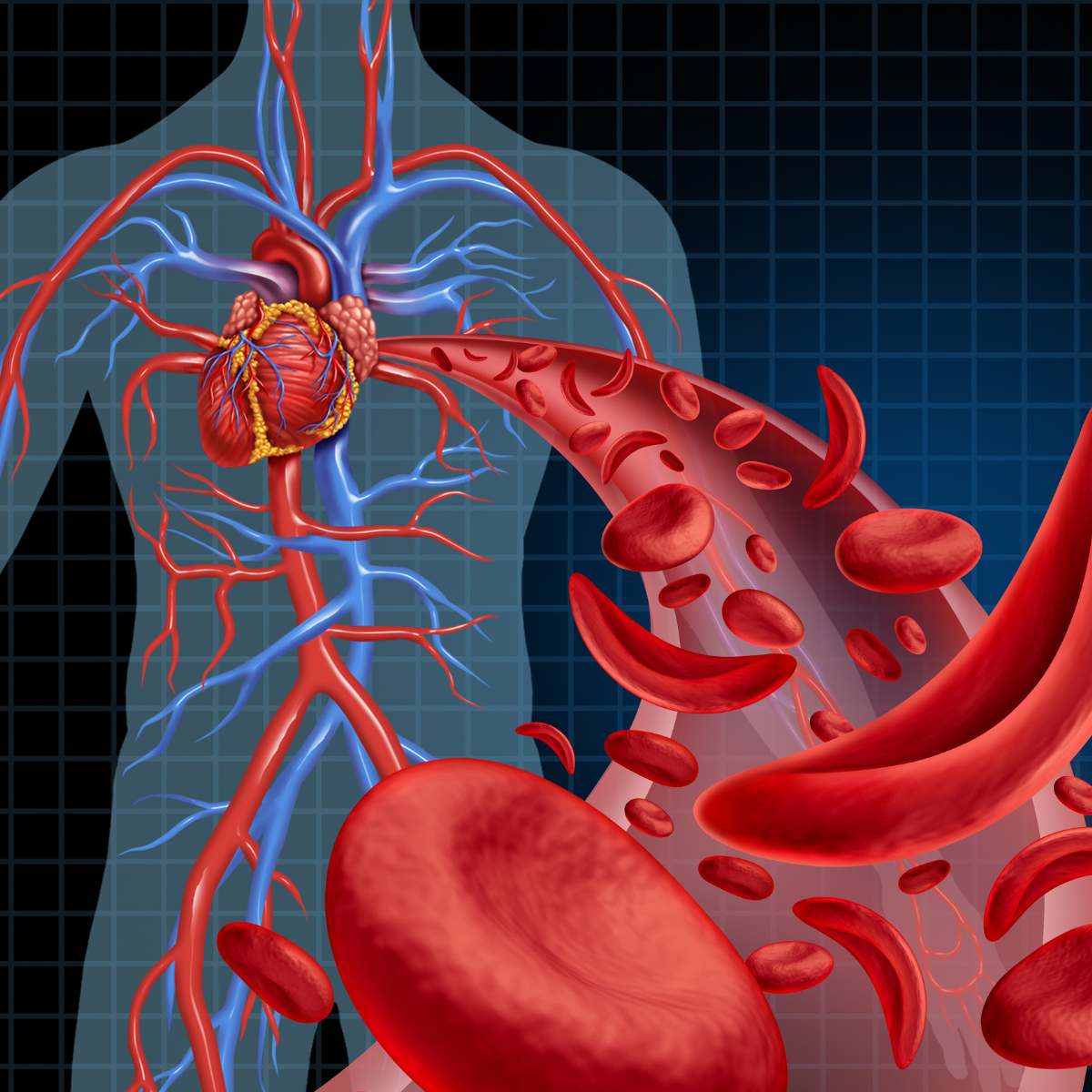
Sea moss is a good source of iron, which is an essential component of hemoglobin, a protein in red blood cells that carries oxygen from the lungs to the rest of the body. A sufficient iron intake is important for maintaining healthy blood circulation.
Sea moss also contains magnesium which plays a key role in many physiological processes, including blood circulation. It helps to regulate the constriction and relaxation of blood vessels, which can improve blood flow and lower blood pressure.
It also contains potassium, an electrolyte that helps regulate blood pressure by counterbalancing the effects of sodium.
The antioxidants in sea moss help protect against oxidative stress and inflammation. This can help keep blood vessels healthy and protect against cardiovascular disease.
A study, published in the Journal of Medicinal Food, showed that Irish moss and bladderwrack supplementation improved blood circulation and may have potential as a natural remedy for improving circulation in people with obesity.
Another study, published in the Journal of Medicinal Food, found that bladderwrack and Irish moss supplementation improved blood pressure, blood lipid levels, and blood glucose in obese individuals.
Several studies have reported that the anticoagulant activity of fucoidans extracted from bladderwrack (and other brown algae) may have a similar blood-thinning effect to that of heparin.
By supporting healthy blood circulation, sea moss and bladderwrack may have potential benefits for cardiovascular health, although more research is needed to fully understand these effects.
16. May Prevent Neurodegenerative Diseases
Fucoidans in Bladderwrack
The fucoidans contained in brown algae like bladderack give it powerful antioxidant abilities. These have been shown to contribute to the prevention of neurodegenerative diseases like Alzheimer's and Parkinson's.
One way they do this by inhibiting the activation of microglial cells in the brain.
Microglial cells are important immune cells that regulate brain development and repair neurons.
They clean up dead cells, microbes, and other entities that might cause harm to the nervous system. When they function properly, they protect the brain.
However, their functionality can become altered by environmental stressors. When these altered microglia become activated, inflammatory molecules are released.
This sets various processes into motion that eventually damage the nervous system. This can lead to the development of nuerodegenerative diseases.
One example of this can be seen in Alzheimer's disease where malfunctioning microglial cells "eat" perfectly good neurons by accident.
The fucoidans in brown algae like bladderack have been shown to inhibit production of nitric oxide and prostoglandin E2. They can also reduce the expression of several enzymes and pro-inflammatory cytokines. 23
In a nutshell, fucoidans are able to downregulate certain harmful pathways. This means they may offer a significant therapeutic benefit for combating neurodegenerative diseases.
AGE's and Phlorotannins
Advanced glycation end products (AGEs) are toxic compounds that can be formed in the body under certain conditions. They're associated with many chronic diseases including nuerodegenerative diseases. Phlorotannins in bladderack combat Parkinson's and Alzheimers by inhibiting the formation of AGEs.
Popular Uses of Sea Moss

- Culinary Uses: Carrageenan extracted from sea moss is used as a thickener and stabilizer in a variety of dishes, such as soups, stews, broths, smoothies, and ice creams.
- Sea Moss Supplements: Sea moss capsules are a very common supplement form used but powders, gels and gummies are available too.
- Skincare: Sea moss is used in various skincare products due to its moisturizing and nourishing properties. Sea moss gel, lotions, and creams are commonly used to soothe, hydrate and nourish the skin.
- Beauty: Sea moss is sometimes used as a natural hair gel or styling product, due to its ability to add shine and nourish the hair.
Popular Uses of Bladderwrack
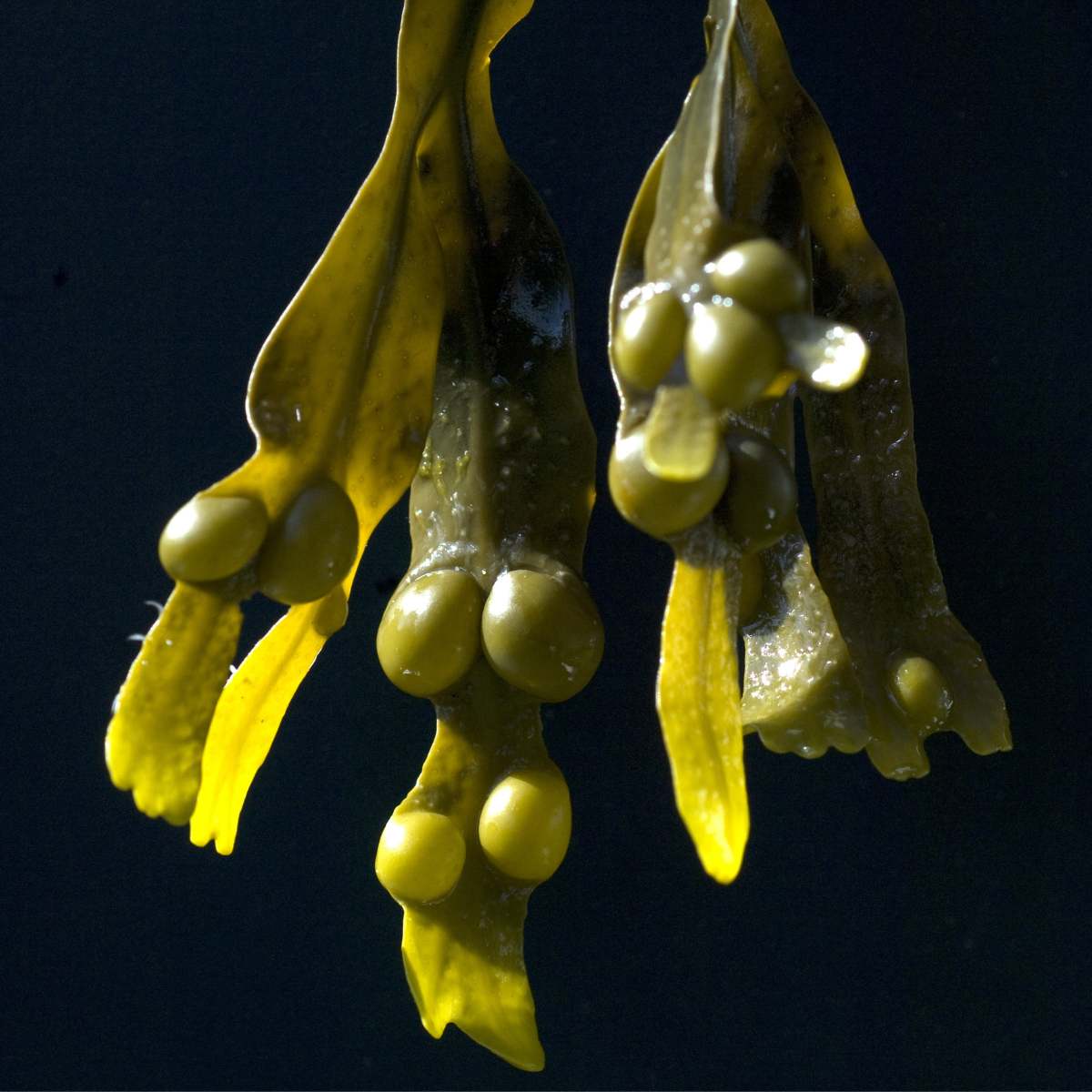
- Health Supplements: Since bladderwrack is rich in iodine, it is commonly used in health supplements to support thyroid health.
- Skincare: Bladderwrack is often used in skincare products due to its skin-soothing and moisturizing properties. Bladderack among other algaes/seaweeds is used in cosmetic formulations to reduce cellulite.
- Beauty: Bladderwrack is sometimes used in beauty products such as shampoos, conditioners, and hair treatments, as it is believed to nourish and strengthen the hair.
- Culinary Uses: Bladderwrack is sometimes used as a flavor enhancer in soups, broths, and other dishes, and is also used as a food thickener in some traditional recipes.
Popular Uses of Burdock Root
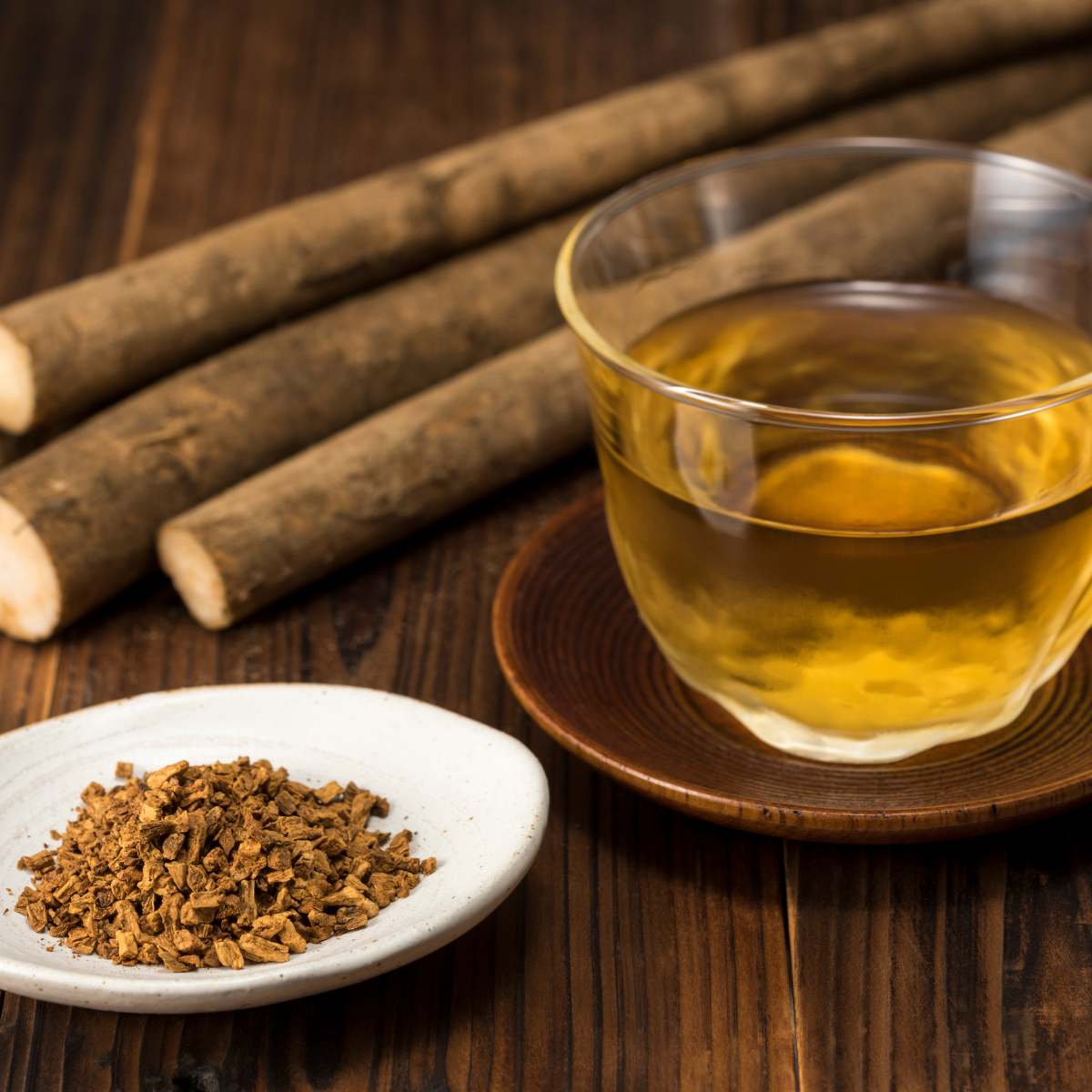
- Health Supplements: Burdock root is rich in antioxidants and other nutrients, and is commonly used in health supplements to support overall well-being.
- Culinary Uses: Burdock root is often used in various cuisines, particularly in Asia and Europe, where it is enjoyed for its earthy flavor and texture. It is often sliced and fried, or boiled and added to soups and stews.
- Beauty: Burdock root is sometimes used in beauty products, such as shampoos and conditioners, due to its nourishing and hydrating properties.
- Gardening: Burdock root is sometimes used as a natural fertilizer due to its high nutrient content, which can help improve soil quality and support the growth of other plants.
- Burdock Root Tea- Burdock root tea is a beverage made from the roots of the burdock plant (Arctium lappa), which is native to Europe and Asia. It’s commonly consumed for its potential benefits for liver and digestive health. Burdock root tea is also prized for its earthy, slightly sweet flavor. It is often consumed as a hot tea, and is sometimes blended with other herbs or spices to enhance its flavor and benefits.
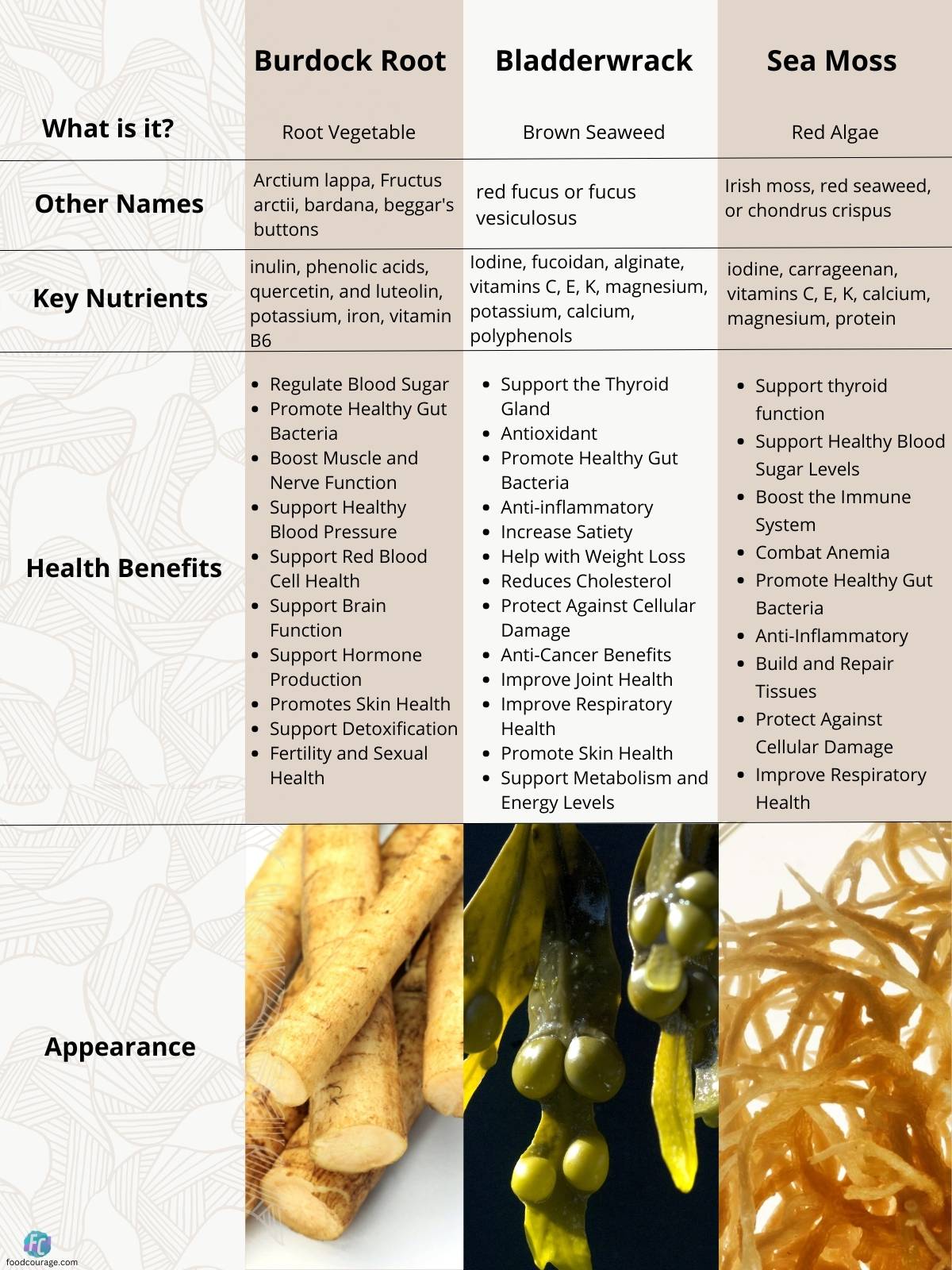
Conclusion
While these plants have tons of potential health benefits, it's important to speak with a healthcare professional before using them for any health condition. They should not be used as a substitute for conventional healthcare treatments, and it's important to follow recommended dosages and use high-quality products to ensure safety and effectiveness.
It's also important to note that research on their safety and effectiveness is limited and supplements made from these plants are not approved by the U.S. Food and Drug Administration (FDA). I'm not a doctor and this post is not medical advice but for informational purposes only. Please speak with a healthcare professional for guidance on your specific needs.
If You Liked This Post, You May Also Like:
References
- Hirmo S., Utt M., Ringner M., Wadström T. Inhibition of heparan sulphate and other glycosaminoglycans binding to Helicobacter pylori by various polysulphated carbohydrates. FEMS Immunol. Med. Microbiol. 1995;10:301–306. doi: 10.1111/j.1574-695X.1995.tb00048.x.
- Cumashi A., Ushakova N.A., Preobrazhenskaya M.E., D’Incecco A., Piccoli A., Totani L., Tinari N., Morozevich G.E., Berman A.E., Bilan M.I., et al. A comparative study of the anti-inflammatory, anticoagulant, antiangiogenic, and antiadhesive activities of nine different fucoidans from brown seaweeds. Glycobiology. 2007;17:541–552. doi: 10.1093/glycob/cwm014. [PubMed] [CrossRef] [Google Scholar]
- Khotimchenko M., Tiasto V., Kalitnik A., Begun M., Khotimchenko R., Leonteva E., Bryukhovetskiy I., Khotimchenko Y. Antitumor potential of carrageenans from marine red algae. Carbohydr. Polym. 2020;246:116568. doi: 10.1016/j.carbpol.2020.116568. [PubMed] [CrossRef] [Google Scholar]
- Plaza M., Herrero M., Alejandro Cifuentes A., Ibáñez E. Innovative natural functional ingredients from microalgae. J. Agric. Food Chem. 2009;57:7159–7170. doi: 10.1021/jf901070g. [PubMed] [CrossRef] [Google Scholar]
- Lee J.W., Seok J.K., Boo Y.C. Ecklonia cava Extract and Dieckol Attenuate Cellular Lipid Peroxidation in Keratinocytes Exposed to PM10. Evidence-based Complement. Altern. Med. 2018;2018 doi: 10.1155/2018/8248323.
- Sun Y., Chavan M. Comsetic Composition Comprising Marine Plants. US20140141035A1. US Patent. 2017 Mar 28
- https://www.rndsystems.com/pathways/microglia-activation-during-neuroinflammation-overview
- Hye Young Park, Min Ho Han, Cheol Park, Cheng-Yun Jin, Gi-Young Kim, Il-Whan Choi, Nam Deuk Kim, Taek-Jeong Nam, Taeg Kyu Kwon, Yung Hyun Choi, Anti-inflammatory effects of fucoidan through inhibition of NF-κB, MAPK and Akt activation in lipopolysaccharide-induced BV2 microglia cells, Food and Chemical Toxicology, Volume 49, Issue 8, 2011,Pages 1745-1752,
- Hye Young Park, Min Ho Han, Cheol Park, Cheng-Yun Jin, Gi-Young Kim, Il-Whan Choi, Nam Deuk Kim, Taek-Jeong Nam, Taeg Kyu Kwon, Yung Hyun Choi,
Anti-inflammatory effects of fucoidan through inhibition of NF-κB, MAPK and Akt activation in lipopolysaccharide-induced BV2 microglia cells,
Food and Chemical Toxicology, Volume 49, Issue 8, 2011, Pages 1745-1752. - Barbosa M, Valentão P, Andrade PB. Bioactive compounds from macroalgae in the new millennium: implications for neurodegenerative diseases. Mar Drugs. 2014 Sep 25;12(9):4934-72. doi: 10.3390/md12094934. PMID: 25257784; PMCID: PMC4178484.
- Myers SP, O'Connor J, Fitton JH, Brooks L, Rolfe M, Connellan P, Wohlmuth H, Cheras PA, Morris C. A combined Phase I and II open-label study on the immunomodulatory effects of seaweed extract nutrient complex. Biologics. 2011;5:45-60. doi: 10.2147/BTT.S12535. Epub 2011 Feb 15. PMID: 21383915; PMCID: PMC3044793.
- Li B, Lu F, Wei X, Zhao R. Fucoidan: structure and bioactivity. Molecules. 2008 Aug 12;13(8):1671-95. doi: 10.3390/molecules13081671. PMID: 18794778; PMCID: PMC6245444.
- Jiao G, Yu G, Zhang J, Ewart HS. Chemical Structures and Bioactivities of Sulfated Polysaccharides from Marine Algae. Marine Drugs. 2011; 9(2):196-223. https://doi.org/10.3390/md9020196
- Jiao G, Yu G, Zhang J, Ewart HS. Chemical Structures and Bioactivities of Sulfated Polysaccharides from Marine Algae. Marine Drugs. 2011; 9(2):196-223. https://doi.org/10.3390/md9020196

Leave a Reply